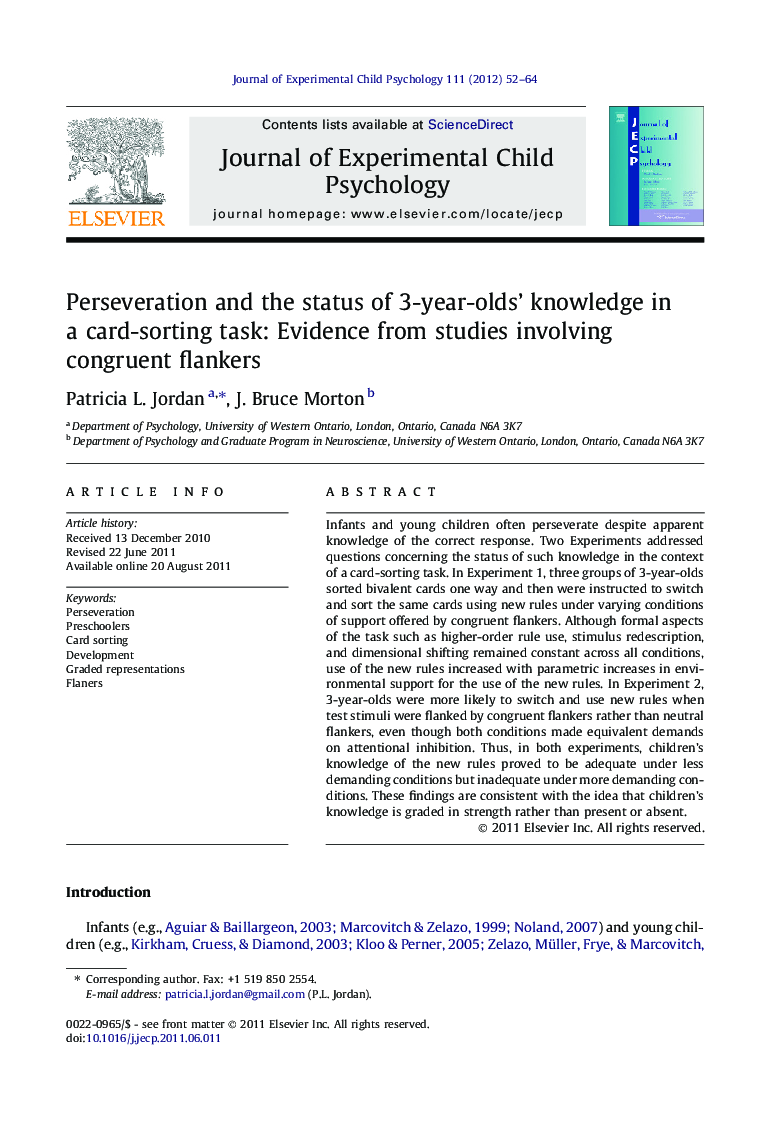| Article ID | Journal | Published Year | Pages | File Type |
|---|---|---|---|---|
| 918344 | Journal of Experimental Child Psychology | 2012 | 13 Pages |
Infants and young children often perseverate despite apparent knowledge of the correct response. Two Experiments addressed questions concerning the status of such knowledge in the context of a card-sorting task. In Experiment 1, three groups of 3-year-olds sorted bivalent cards one way and then were instructed to switch and sort the same cards using new rules under varying conditions of support offered by congruent flankers. Although formal aspects of the task such as higher-order rule use, stimulus redescription, and dimensional shifting remained constant across all conditions, use of the new rules increased with parametric increases in environmental support for the use of the new rules. In Experiment 2, 3-year-olds were more likely to switch and use new rules when test stimuli were flanked by congruent flankers rather than neutral flankers, even though both conditions made equivalent demands on attentional inhibition. Thus, in both experiments, children’s knowledge of the new rules proved to be adequate under less demanding conditions but inadequate under more demanding conditions. These findings are consistent with the idea that children’s knowledge is graded in strength rather than present or absent.
► Congruent flankers improved 3-year-old’s performance in the Dimensional Change Card Sort (DCCS). ► This congruency effect varied systematically with changes in the horizontal displacement of the flankers. ► The congruency effect was observed in a Negative Priming version of the task. ► The findings are consistent with a graded representations theory.
